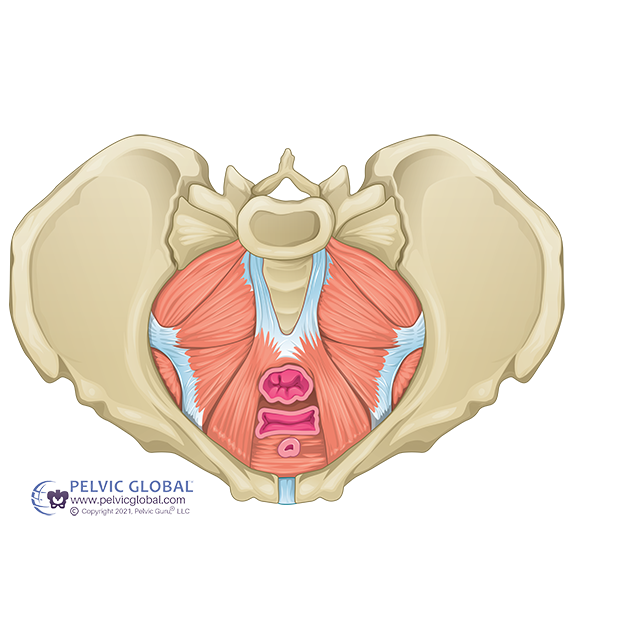Why you should care about the pelvic floor
It seems like everywhere nowadays people are talking about the pelvic floor. As a Pelvic Health Physical Therapist, I obviously think this is great! (I always joke that “back in my day” everything was hush hush because before social media really took off, there was no public forum where we talked about the pelvic floor!)
However, even though there’s a lot of talk on Instagram about the pelvic floor, I know that there’s probably a lot of people out there who aren’t exactly sure what the pelvic floor even is or why it’s important. So I’m here to break it down for you!
First let’s start with a basic anatomy lesson.
The pelvic floor simply refers to the group of muscles that sit at the bottom of the pelvis, pictured above (can you guess what those 3 holes are?). They’re pretty important because they give support to all our organs. I like to think of the pelvic floor as the ultimate muscles for posture because they support us all day every day!
Because the pelvic floor muscles support our organs, if we have pelvic floor muscle dysfunction, we usually experience problems with our bowel or bladder as those 2 organs are right in our pelvis (the organs themselves aren’t shown in the above picture but the bowel and bladder are represented by 2 of the holes shown - the 3rd hole would be the vaginal canal connecting to the uterus).
Most people think that pelvic floor muscle dysfunction only happens in pregnancy or with childbirth. But that could not be further from the truth! I had pelvic floor dysfunction in my early twenties and I had never had children. Just like any other muscle in the body, the pelvic floor muscles can become cranky for a variety of reasons and can then cause symptoms such as:
pelvic pain
urinary incontinence
a feeling of heaviness in the pelvis
uncontrolled gas
And more! Pelvic floor problems are a pain in the butt! (Pun intended.)
So why should you care about the pelvic floor? So that you can be proactive to prevent these issues! (And because the pelvic floor is really cool of course.)
Just like we can work on other areas of our health, we can also work on our pelvic health! This involves working on things like:
pelvic floor coordination
bladder training
intra-abdominal pressure management
full body mobility & strength
stress management
impact training
And more. Some of the above might surprise you, but our pelvic floor is influenced by so many factors that all of the above can contribute to pelvic health. And if you’re thinking “Okay but how do I work on my pelvic floor coordination?” or “What the heck is bladder training?” then stay posted because all of those topics deserve their own blog posts!
If you’re experiencing pelvic floor symptoms, I’d love to help you! Please reach out to me by using my contact form here. Your healing can begin today!

